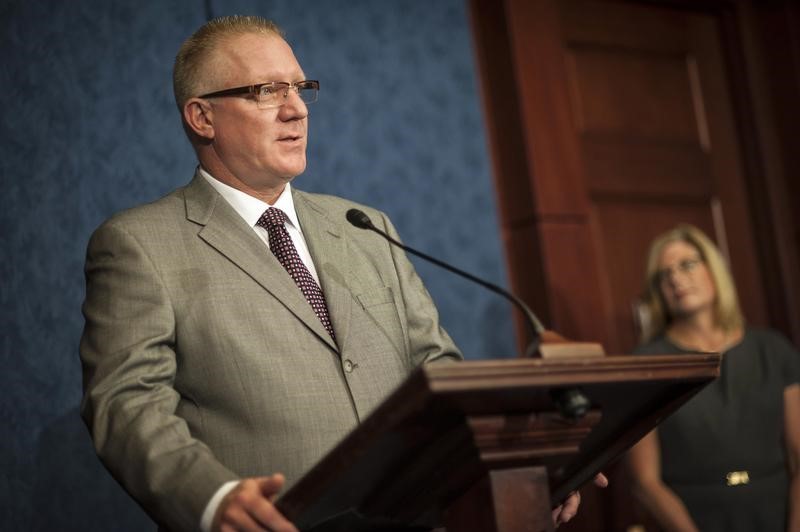By Luciana Lopez
(Reuters) – Business groups and unions are bulking up lobbying budgets and coordinating efforts to put pressure on Congress not to let President Donald Trump’s infrastructure spending plans fall through the cracks on Capitol Hill. “The more time goes on, the more frustration will build up if it doesn’t come around quick enough,” said Sean McGarvey, president of North America’s Building Trades Unions. McGarvey and Terry O’Sullivan, the president of laborers’ union LiUNA, met with Trump in January and spoke about infrastructure. “I felt coming out of that conversation the president’s desire to move quickly on it,” McGarvey said. But, he added, a crowded agenda in Congress “might be putting a little bit of a reality check on it.” Trump promised often during his campaign last year he would seek a trillion-dollar infrastructure program to create jobs and fix crumbling airports, bridges and roads, and he said Monday he planned to raise the issue in an address to Congress Tuesday night. However, infrastructure spending is fighting for space on Congress’s agenda with immigration, taxes, overhaul of the Affordable Care Act and a Supreme Court nomination.
Against that backdrop, unions and business groups are setting aside their differences on a host of issues to work together to revive momentum for substantial infrastructure spending.
Infrastructure spending is one issue where Democratic union leaders, Republican business executives and the Trump administration share common ground.
LiUNA and the U.S. Chamber of Commerce, which represents business interests, are collaborating through a chamber-led group called Americans for Transportation Mobility. LiUNA also is working with a lobbying group for big construction employers through a group called the Transportation Construction Coalition. The Associated General Contractors of America has increased its budget for advocacy for new infrastructure measures by 25 percent, from $800,000 last year to $1 million this year. A December radio interview blitz was planned to catch lawmakers in their home districts for the holidays. And the association is using the monthly release of jobs data to travel to places where construction employment has lagged. When O’Sullivan and McGarvey met with Trump in January, the conversation included specific projects such as the Keystone XL and the Dakota access pipelines, bridges, schools, hospitals and a wide variety of other projects, McGarvey said in a press call at the time. “We’ve had pretty regular communications since our meeting,” including top policy aide Stephen Miller and his staff, about twice a week, McGarvey told Reuters.
Still, the administration has not put forward a specific plan, and congressional leaders have not committed to action this year.
Senate Majority Leader Mitch McConnell, a Republican, told reporters recently that he expects “some kind of recommendation on an infrastructure bill,” though he gave no other details.
“It may not be a slam dunk to get anything done,” said Matthew Miller, an equity analyst with CFRA.
A Trump administration official said the White House is still weighing how infrastructure can best add economic capacity, as well as how to measure that.
“Initially what we’re trying to do is make sure we’re thinking expansively and creatively,” an administration official said, including identifying how new technology such as drones and autonomous vehicles can help go beyond merely replacing aging infrastructure. “There’s enormous potential gains,” the official said, adding that the president will likely have more meetings with union and business leaders on the topic.
United Auto Workers union president Dennis Williams earlier this month defended the building trades union leaders who met with the Republican president.
“The building trades are after jobs,” Williams said. “I don’t think they are going to walk away from the labor movement because they had a meeting with Trump.”
The pro-infrastructure groups are adapting their traditional tactics to the Trump White House. The U.S. Chamber of Commerce is redirecting more of its efforts to social media, hiring more staff to send messages through Facebook and Twitter. “Even five years ago it used to be you bought an ad in the Washington Post or the New York Times and that’s how you get your message across,” said Ed Mortimer, the executive director of transportation infrastructure at the chamber. “I did a Facebook live a couple of weeks ago. I didn’t even know what Facebook live was.” (Reporting by Luciana Lopez; Editing by James Dalgleish)
Business, unions ramp up campaign for U.S. infrastructure spending

By Luciana Lopez
















